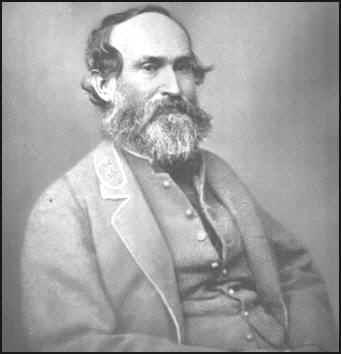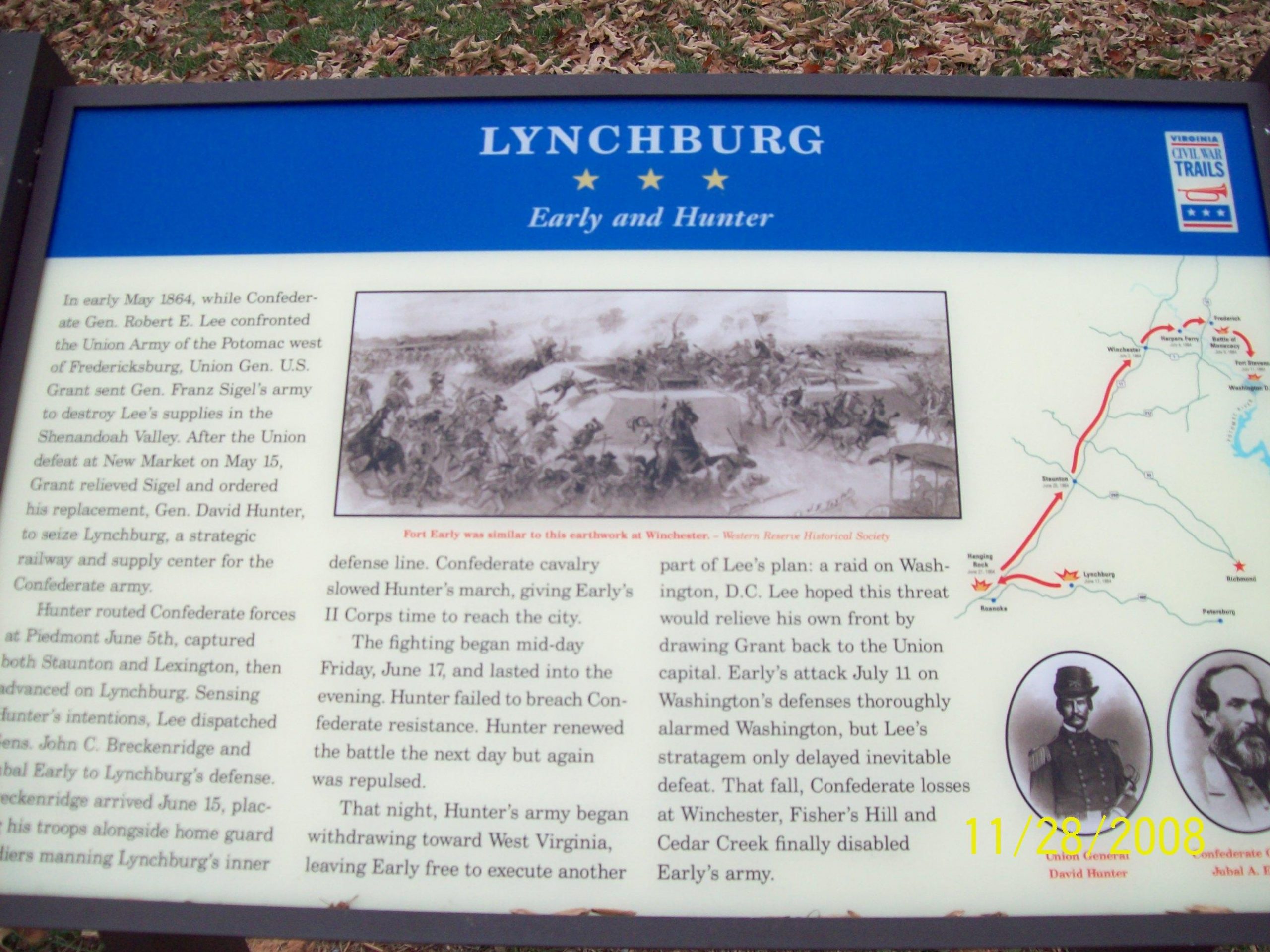
Episode Description:
Check out the final episode of our 10-part Civil War mini-series about life and leadership lessons we can learn from that conflict!
If you know anything about the US Civil War at all, you know names like Lee, Jackson, Lincoln, Grant, and Davis. However, do you know the name Jubal Early? You may be surprised, he was at MORE Civil War battles than any other Confederate general. Plus, this podcast originates in the beautiful Blue Ridge Mountains of Virginia, and Jubal Early was from here, being born and raised in Franklin County, Virginia. For the many locals who listen to this podcast, you might be surprised to hear his home is just southeast of Roanoke, right off Rt. 616, in the Red Valley area between Burnt Chimney and Windy Gap Mountain! His home is now preserved by a volunteer agency and is sometimes open for tours; check out their website. Also for our local listeners, in the summer of 1864, Early left Richmond and headed west. He defeated a Union Army under General David Hunter near Lynchburg. Then, Early’s men sent straight over the Blue Ridge Mountains into the valley beyond–their path followed what today is Route 43 from Bedford to Buchanan, and they passed right by what is today the Peaks of Otter Lodge! (Hear the podcast about that beatiful spot.)

You might be shocked to learn that in July 1864, less than a year before the war ended at Appomattox, Jubal Early invaded Maryland and was at the outskirts of Washington! This is one of the biggest “what if’s? of the Civil War. Imagine Early and his CSA army invading Washington, arresting Lincoln, and burning the White House and Capitol–it boggles the mind, and he came close to pulling it off! Listen to find out more, and why his effort failed at the last minute.
The episode then switches sides and discusses some about Union General William Sherman, and how his victory in the fall of 1864 saved Lincoln’s re-election chances and thus the preservation of the USA, and how the little-known Senator Edmund Ross of Kansas, by a single vote, saved the presidency of Andrew Johnson! This episode has all sorts of surprises!
Listen to Episode 36 below.
To help our ESL learners, you can practice your listening abililty by answering these question! (Answers at the end.)
1. At 14:40, Early was “making tracks to D.C.” What does this mean? Early was…
A. making a railroad
B. following an animal to hunt it
C. traveling and moving
D. none of the above
2. Around 16:40, General Grant “dispatched soldiers from Richmond to Washington.” What does “dispatched” mean in this sentence?
A. Grant killed the soldiers
B. Grant sent the soldiers on specific business
C. Grant sent an important message
D. None of the above
(Note: the word “dispatch” is on p. 154 of Wordly Wise 300 Book 7, a book we often use at DreyerCoaching.com. The SAT, ACT, and TOEFL exams often ask about words that have multiple meanings.)
3. Around 15:30, you hear that the Union general defending Washington was “Old Brains” Halleck. Why was he nicknamed “Old Brains”?
A. He was a genius
B. Only older people could realize how smart he was
C. Even though he was old, he had managed to keep his mind sharp and active
D. He had many old-fashioned and out-dated ideas
4. Around 17:00, you hear “Early had fought an engagement.” What does “engagement” mean here?
A. a battle
B. a man and woman deciding to get married
C. an important meeting
D. the telephone was busy
5. What was unique about Lincoln at Fort Stevens, right outside Washington DC? (18:00-20:00)?
6. What is the name of the tiny village in Central Virginia where Lee had surrendered to Grant in 1865, thus ending the US Civil War?
7. Where did Early go after Lee’s surrender to Grant?
8. True of False: When you study world history, it is common for the winning side in a civil war to show mercy and grace to the losing side and let the rebel soldiers go home freely.
9. What powerful idea, or belief, in the US caused the North to show great mercy to the South after the South lost the Civil War?
10. When Jubal Early’s homeplace came on the market in the early 2000s, what are the two reasons why Scott and his family did not buy it?
11. Lee : Jackson :: ____________ : Sherman
12. What city was Sherman’s main target in the fall of 1864?
13. Why were Sherman and his army especially harsh to South Carolina when they marched through near the end of the war?
14. Why does Scott often say, “Let that sink in”?
15. Why did Lincoln, a Northern Republican, choose Andrew Johnson, a Southern Democrat from Tennessee, to be his vice president in 1864?
********************
Answers:
1. C. traveling and moving
2. B. Grant sent the soldiers on specific business
3. D. He had many old-fashioned and out-dated ideas
4. A. a battle
5. It was the only time in US history that a sitting president had been shot at, in a military conflict. (Many US presidents had been soldiers or generals before the White House, but only Lincoln came under enemy fire while president.)
6. Appomattox
7. He hid in his basement at his homeplace in Franklin County, Virginia, then he went to Texas looking for more soldiers to fight with, then fled to Cuba, to Canada, then finally back to the US
8. False
9. Christianity
10. They did not have the money for it right then, and the maintenance of an old home would be expensive.
11. Grant (This is called an analogy. Since Lee’s “right hand man” was Jackson, Grant’s right hand man was Sherman.)
12. Atlanta, Georgia– it was an important rail center
13. South Carolina had been the first state to seceed, or break away from the Union, so the North blamed South Carolina the most for secession and the horrific losses of the war.
14. This is important; take a moment to think about it and its consequences
15. Lincoln by 1864 was thinking about how to best reunite the nation after he had won the war. So, he thought it would be a great symbol of peace and forgiveness, to choose a Southern Democrat from a state that had broken away, to be his vice president. (Also, it was a political reward to Johnson, who had opposed secession and had stayed at his desk in the US Senate during the Civil War–even though he was a Southerner, he was a firm Unionist.)
***************
Do you want to improve your listening ability? Contact Scott today to see what class you can take to improve that skill!
Have a question or feedback? Maybe a topic you’d like to hear in a future episode? Please email Scott at lifeapppodcast@gmail.com. We’d love to hear from you! If you enjoy our podcasts, please subscribe, write a review, and share them on social media and by word of mouth! Those are GREAT ways to help more people find our podcasts. Please also visit us at www.DreyerCoaching.com; check out the blog posts at the bottom of the page for more information about life in the USA and the crazy English language.
